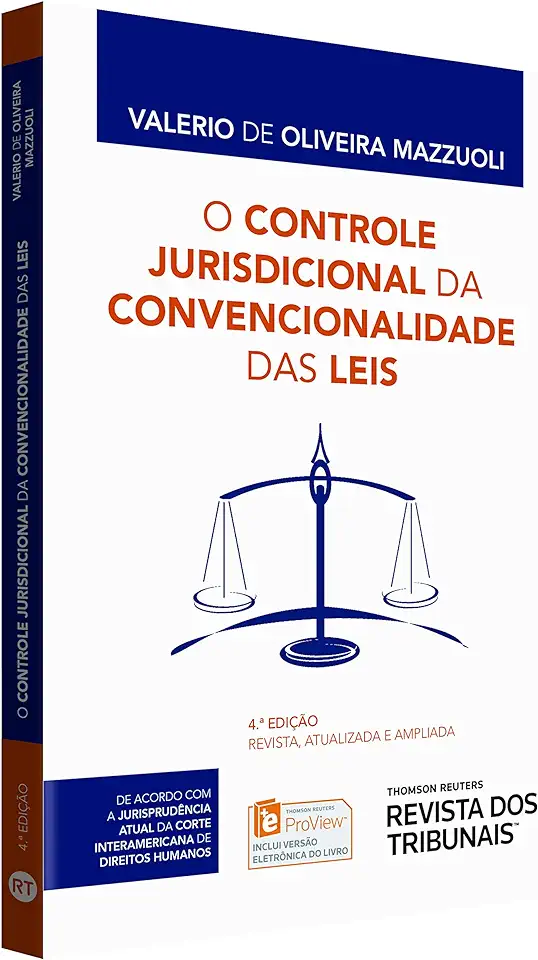
Jurisdictional Control of the Conventionality of Laws - Valerio de Oliveira Mazzuoli
Jurisdictional Control of the Conventionality of Laws: A Comprehensive Analysis
Introduction
In today's globalized world, the interaction between different legal systems is becoming increasingly frequent. This has led to a growing need for mechanisms to ensure that laws are applied in a manner that respects fundamental rights and freedoms. One such mechanism is jurisdictional control of the conventionality of laws.
Jurisdictional control of the conventionality of laws refers to the power of courts to review the compatibility of laws with international human rights treaties. This power is essential to ensure that laws do not violate the rights guaranteed by these treaties.
The Importance of Jurisdictional Control
Jurisdictional control of the conventionality of laws is important for several reasons. First, it helps to protect individuals from human rights violations. By ensuring that laws comply with international human rights standards, jurisdictional control helps to prevent governments from enacting or enforcing laws that violate these standards.
Second, jurisdictional control promotes the rule of law. By requiring governments to justify their laws in light of international human rights norms, jurisdictional control helps to ensure that laws are based on sound legal principles and not on arbitrary or discriminatory grounds.
Third, jurisdictional control contributes to the development of international human rights law. By interpreting and applying international human rights treaties, courts play a vital role in developing the content and scope of these treaties. This process helps to ensure that international human rights law remains relevant and effective in addressing the challenges of the modern world.
The Scope of Jurisdictional Control
The scope of jurisdictional control of the conventionality of laws varies from country to country. In some countries, courts have broad powers to review the compatibility of laws with international human rights treaties. In other countries, courts have more limited powers, or may only be able to review certain types of laws.
The scope of jurisdictional control is often determined by the country's constitution, laws, and judicial precedents. In some cases, the scope of jurisdictional control may also be influenced by international treaties or agreements.
The Process of Jurisdictional Control
The process of jurisdictional control of the conventionality of laws typically involves the following steps:
- A person or group of persons alleges that a law violates their rights under an international human rights treaty.
- The person or group of persons files a lawsuit in court, challenging the validity of the law.
- The court reviews the law in light of the relevant international human rights treaty.
- If the court finds that the law violates the treaty, it may declare the law to be unconstitutional or otherwise invalid.
The process of jurisdictional control can be complex and time-consuming. However, it is an essential mechanism for protecting human rights and ensuring the rule of law.
Conclusion
Jurisdictional control of the conventionality of laws is a vital mechanism for protecting human rights and ensuring the rule of law. By requiring governments to justify their laws in light of international human rights norms, jurisdictional control helps to prevent human rights violations and promotes the development of international human rights law.
The book "Jurisdictional Control of the Conventionality of Laws" provides a comprehensive analysis of this important topic. The book examines the history, theory, and practice of jurisdictional control in a variety of countries. It also discusses the challenges and opportunities facing jurisdictional control in the 21st century.
This book is an essential resource for anyone interested in human rights, international law, or comparative law. It is also a valuable tool for judges, lawyers, and policymakers who are involved in the process of jurisdictional control.